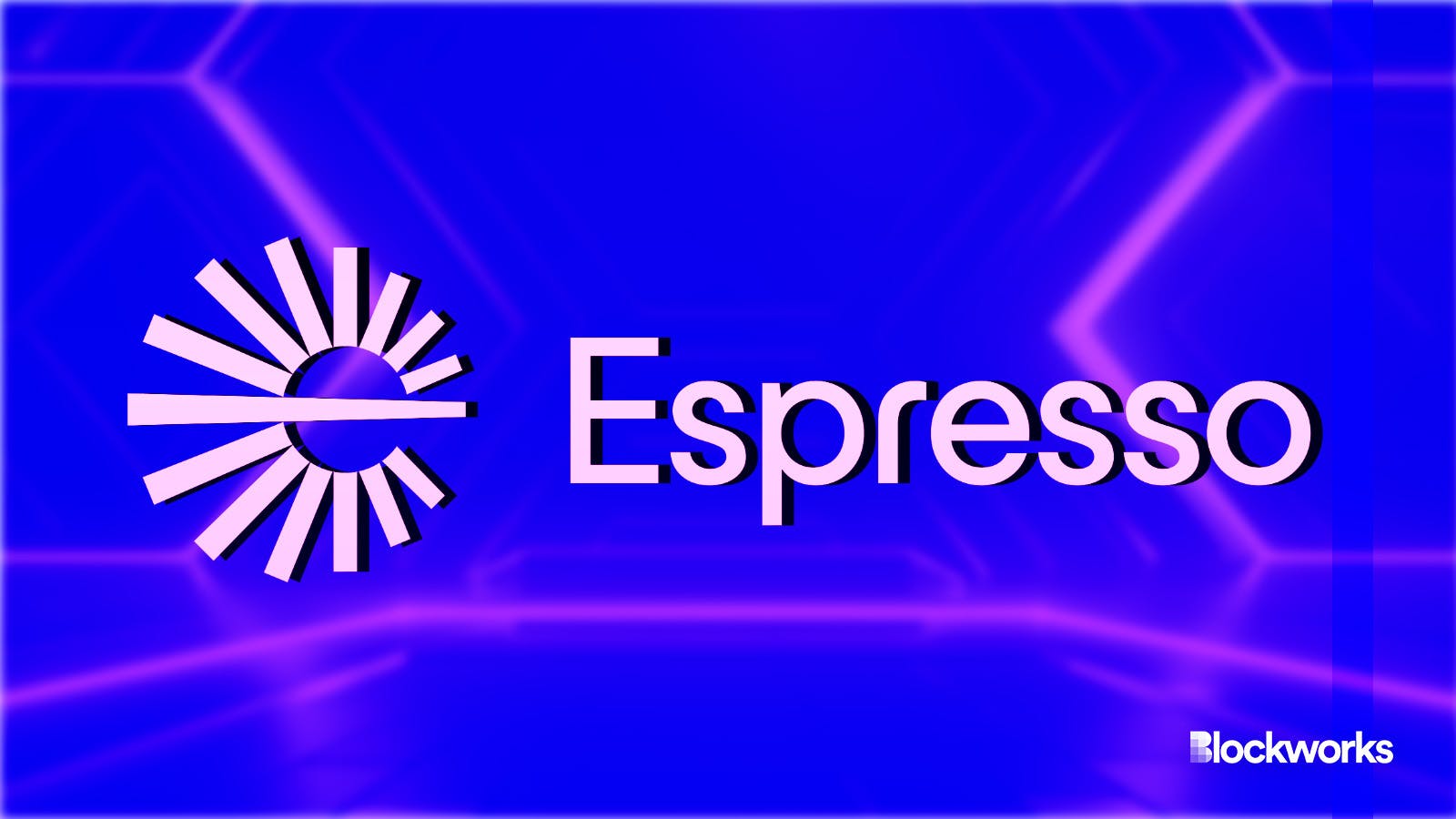Espresso lands $28M to become marketplace for shared sequencing
The funding round was led by a16z crypto, and will be used by the team to continue product development and team scaling

Espresso Systems and Adobe Stock modified by Blockworks
Espresso Systems, a blockchain scaling and privacy infrastructure company most widely known for its shared sequencer solution, has secured $28 million in a Series B funding round led by a16z crypto.
This latest funding will be used to continue product development, broaden investments in the rollup ecosystem and scale the Espresso Systems team.
Sequencers on layer-2 scaling solutions create blocks by ordering and processing transactions in a mempool. These processed transactions are then sent to a virtual machine.
Today, most sequencers are run by rollups in their own execution environments, which can introduce trust assumptions and centralization concerns.
Read more: Offchain Labs’ Goldfeder talks Timeboost, transaction ordering and more
To combat this, Espresso Systems has introduced what it calls the shared sequencer network. This is a chain-agnostic, distributed consensus system that rollups can use to ensure that no one single authority can order transactions.
Ben Fisch, the CEO of Espresso Systems, told Blockworks that “shared sequencing enables rollup users to regain the experience of being on one Ethereum chain, while turning this into a decentralized marketplace for shared sequencing preserves the sovereignty and independence of individual rollups.”
Espresso’s specialized proof-of-stake system, HotShot, acts as a distributed consensus system that multiple different rollups can use. This means that the sequencer itself will no longer be bundled within its own software stack.
Read more: First shared sequencer tech to go live on Polygon zkEVM testnet
“From an economic perspective, a sequencer that purchases the right to produce blocks for multiple rollups at the same time can generate surplus revenue, which comes from enabling interactions across rollups that wouldn’t exist otherwise, and that surplus value flows back to rollups participating in the marketplace,” Fisch said.
So far, Espresso’s technology has been integrated via the Gibraltar testnet with popular scaling solutions, including Optimism, Polygon zkEVM and most recently, Arbitrum. A fifth testnet is anticipated to be released in April.
Read more: Espresso Sequencer’s fourth testnet launch integrates with Arbitrum
“In April, we’ll be releasing our fifth testnet — Cappuccino. Cappuccino will be further decentralized, include various robustness enhancements and set the stage for the Espresso marketplace. The evolution from Espresso as a single decentralized shared sequencer to a marketplace for shared sequencing is critical to rollup sovereignty and value capture,” Fisch said.
In addition to the fifth testnet, the Espresso team is looking to incorporate new features and integrations into its infrastructure solutions.
“Apart from the HotShot finality gadget, we are also hard at work on the Espresso marketplace, which will enable rollups to sell sequencing timeslots to shared sequencers through a combinatorial auction,” Fisch said. “The marketplace will also give special participation rights to Ethereum layer-1 proposers so that based rollups can utilize Espresso as well. Preconfirmation software will also enable shared sequencers to make slashable commitments to satisfy more complex cross-chain user intents.”
Get the news in your inbox. Explore Blockworks newsletters:
- The Breakdown: Decoding crypto and the markets. Daily.
- 0xResearch: Alpha in your inbox. Think like an analyst.






